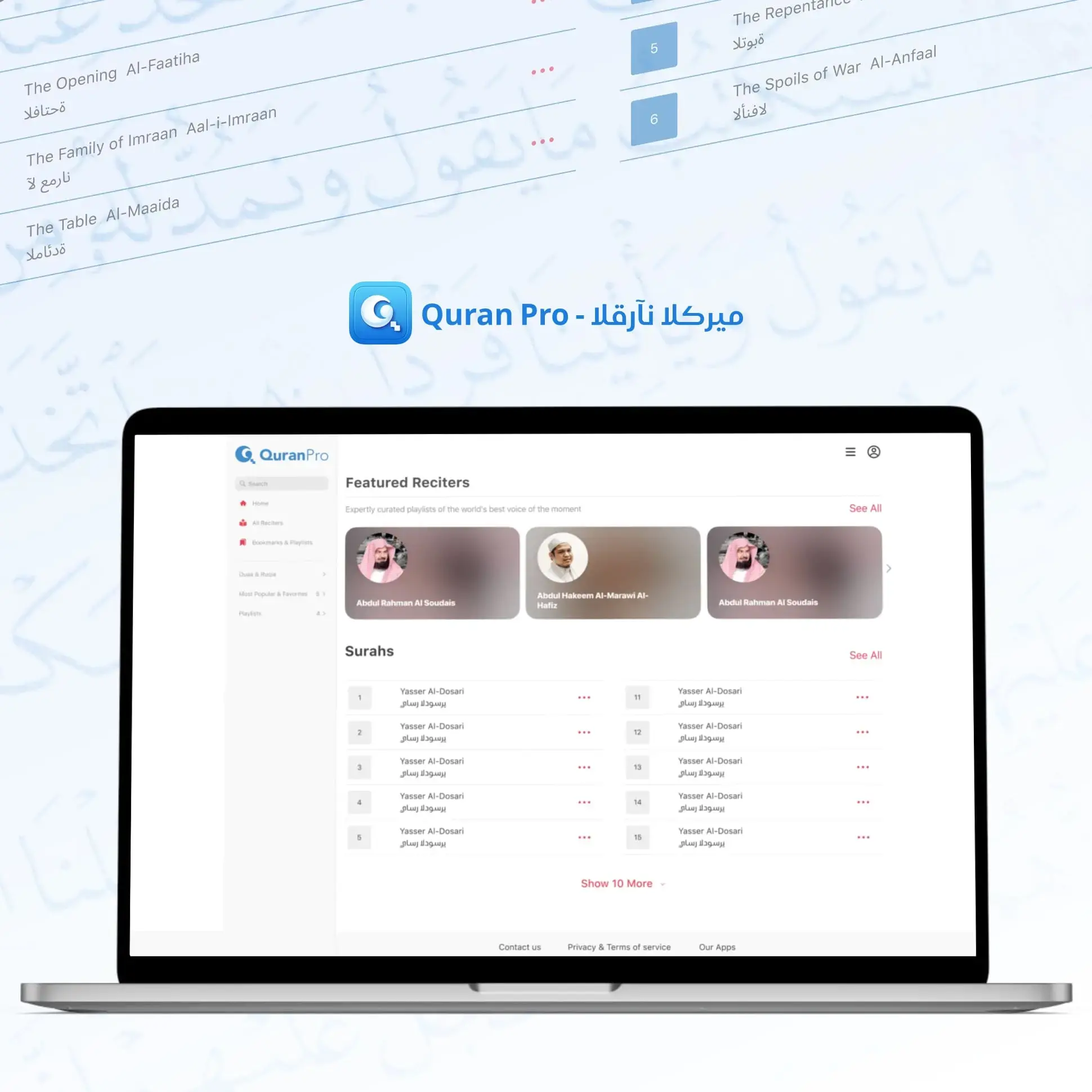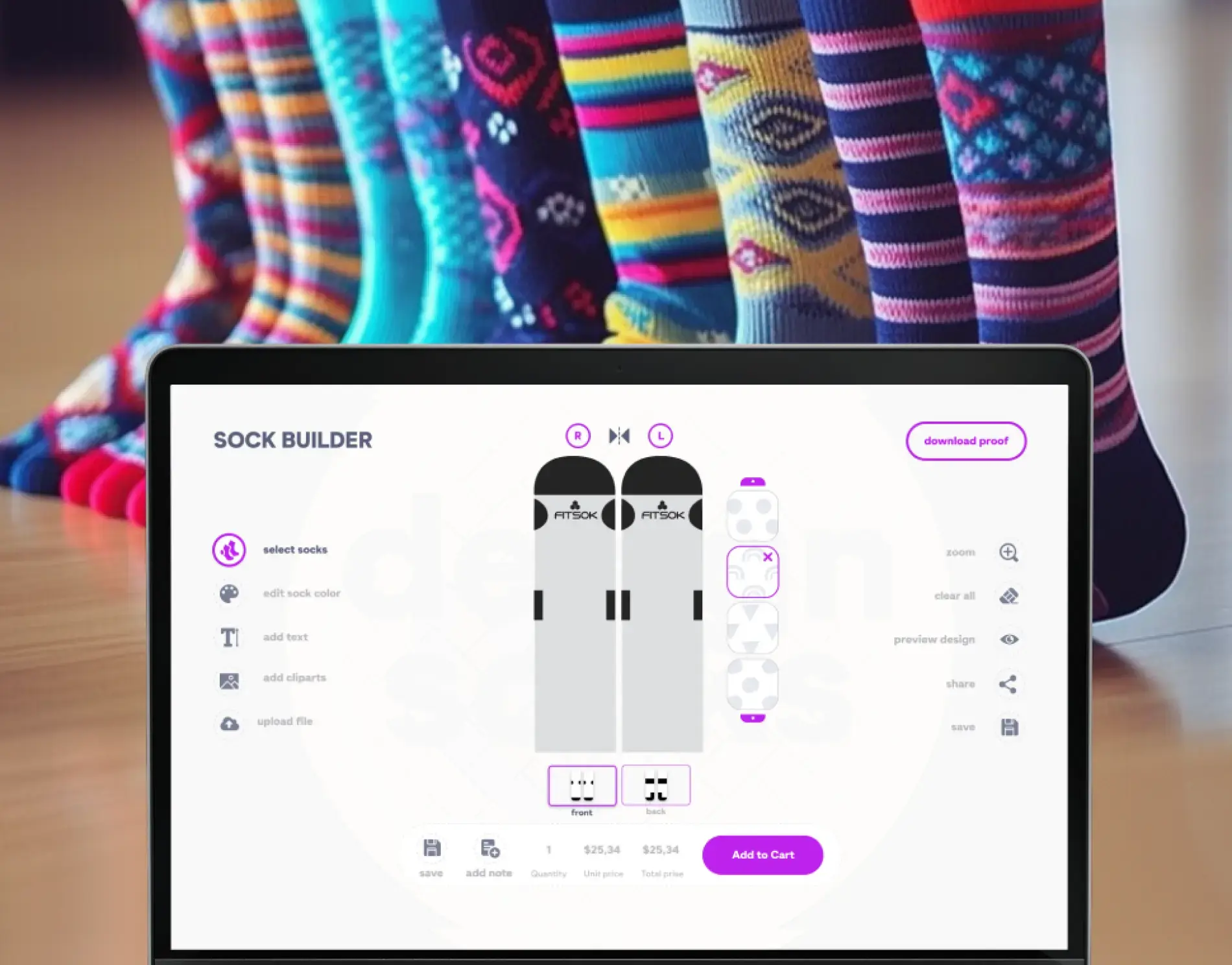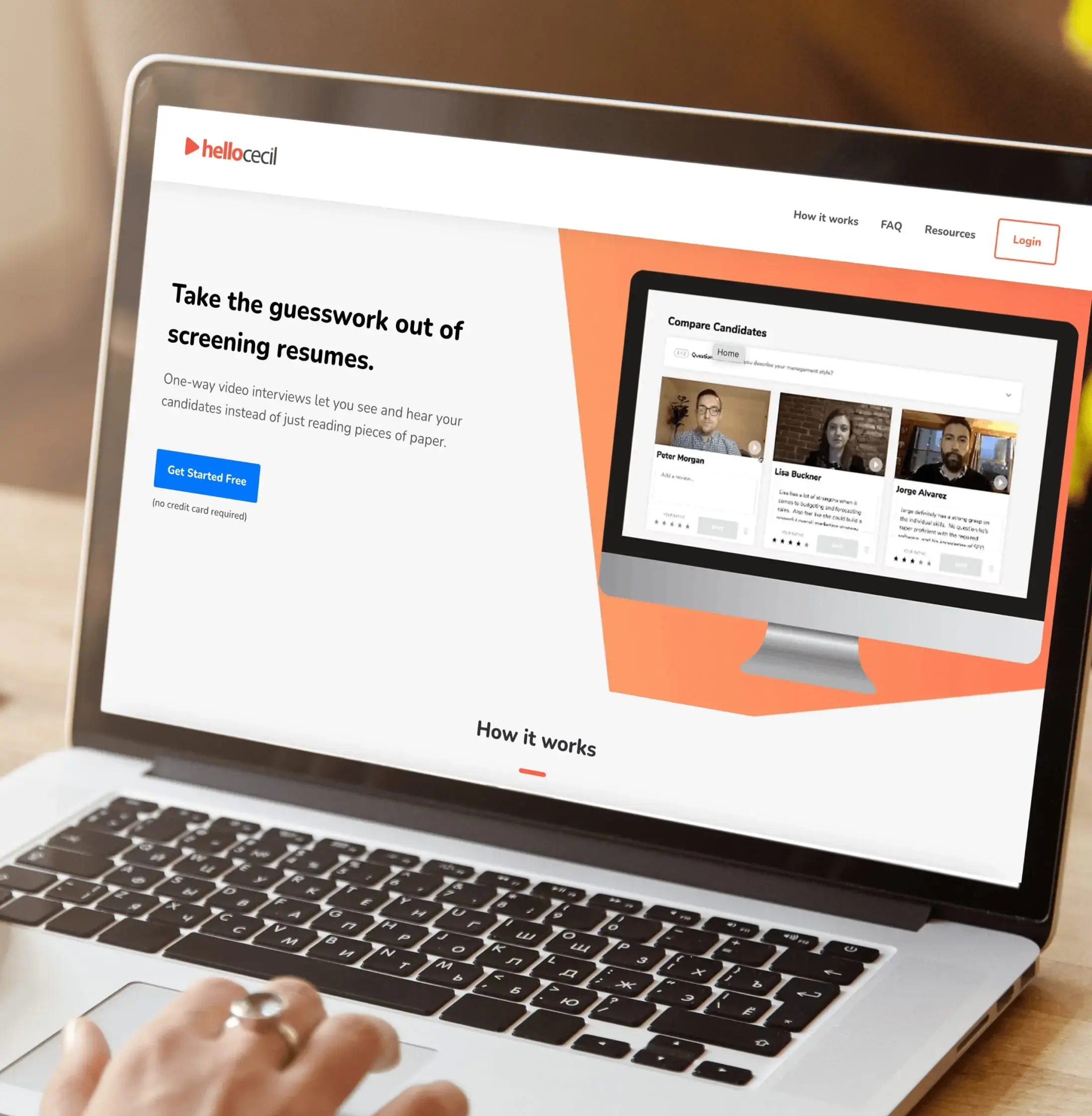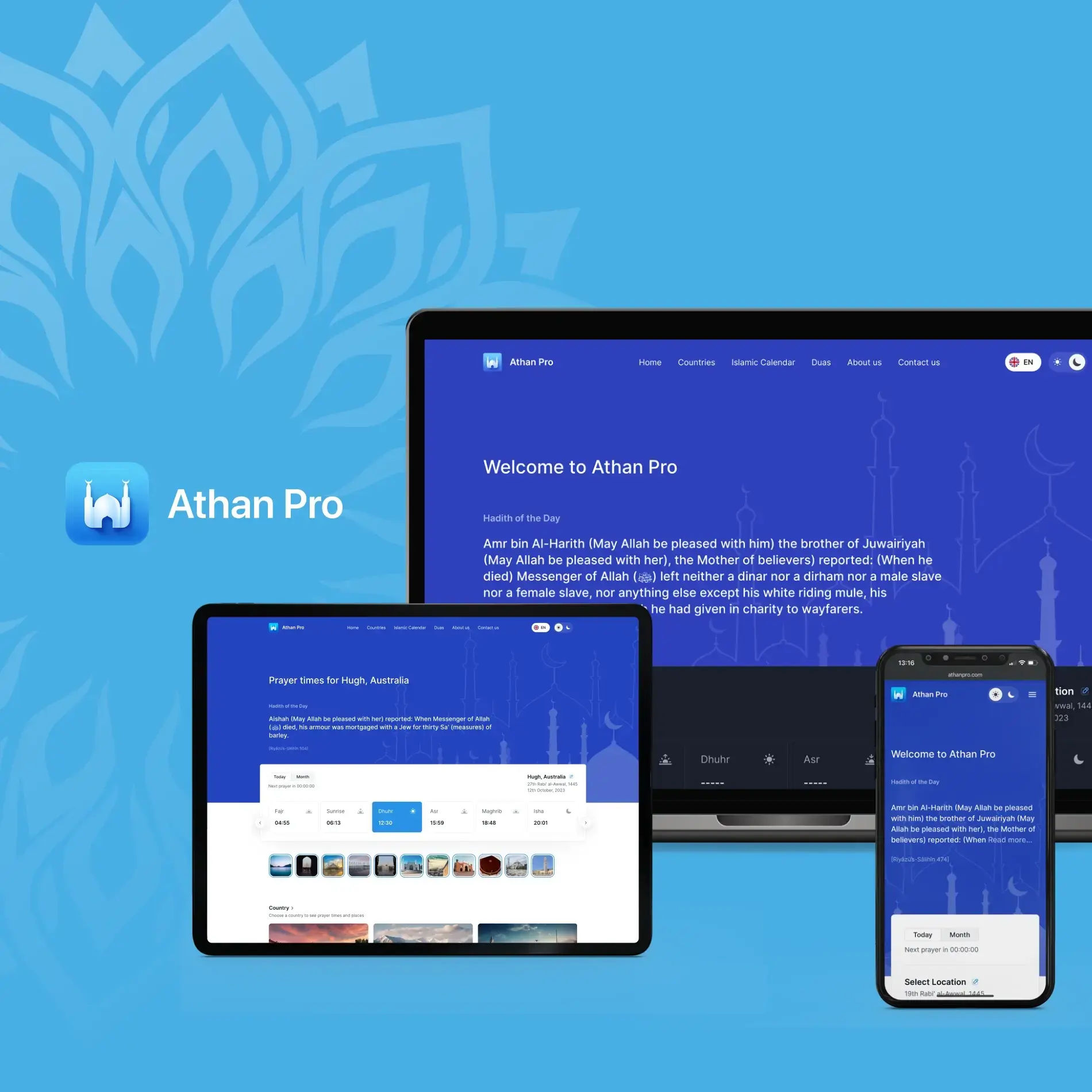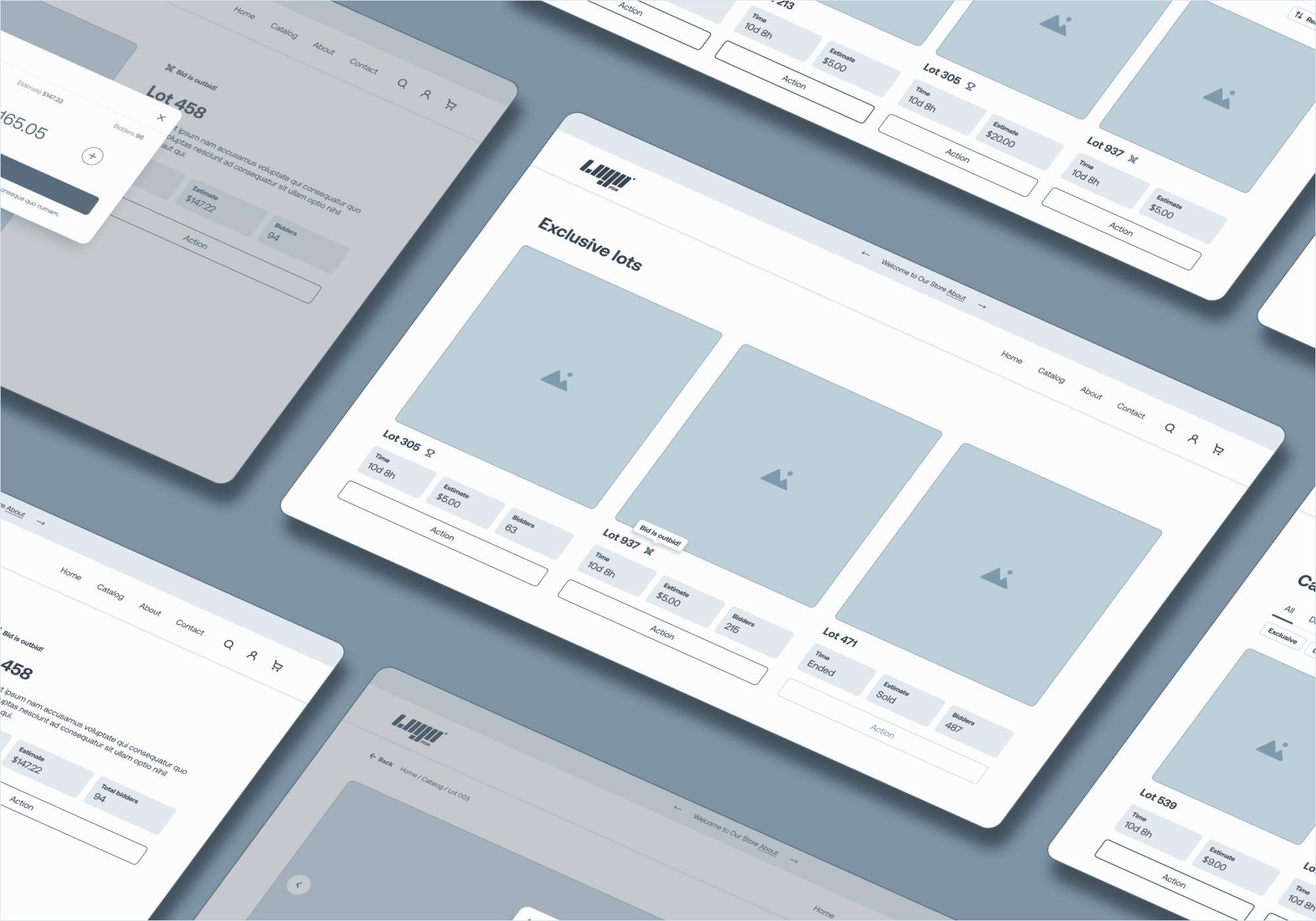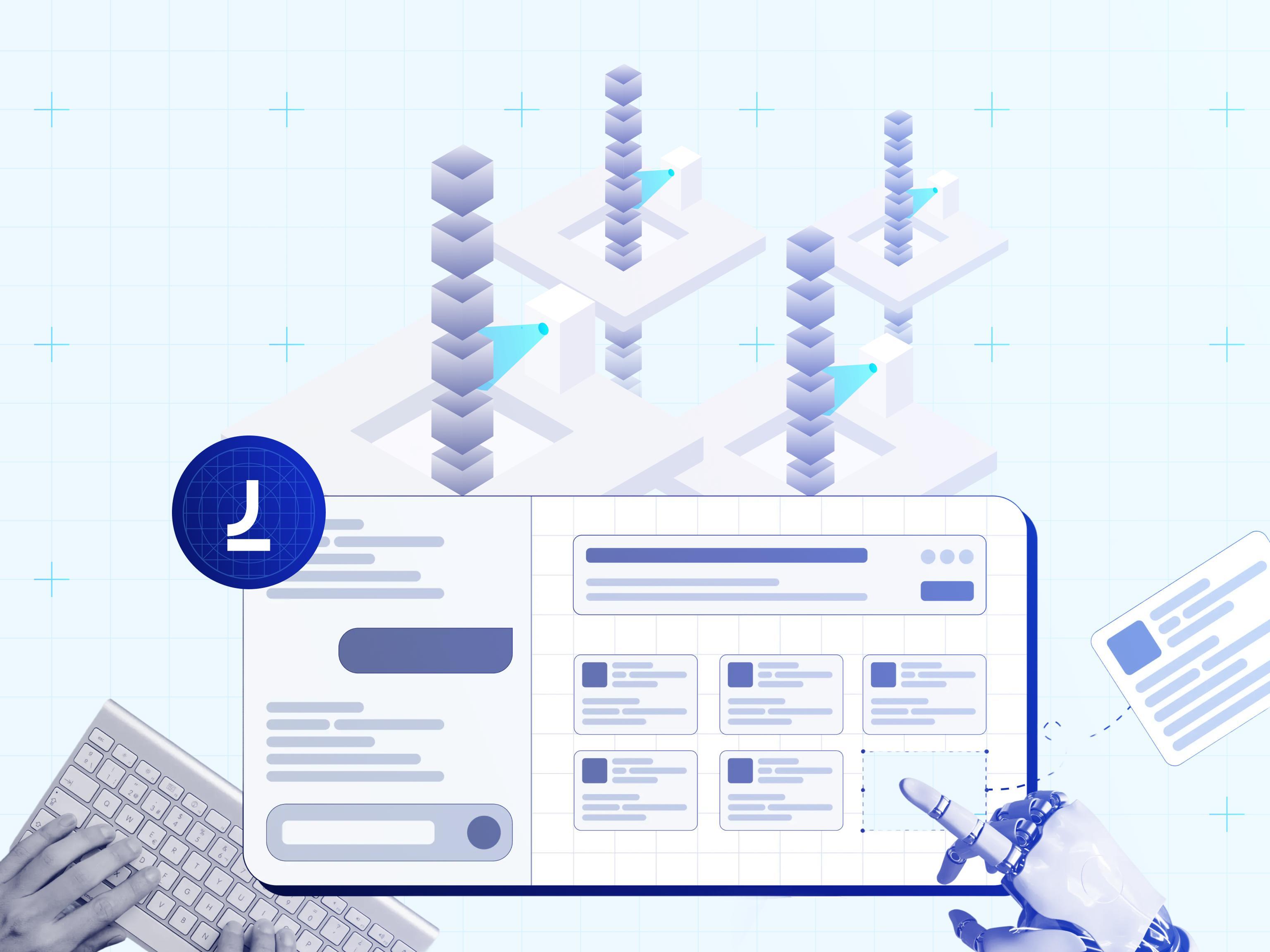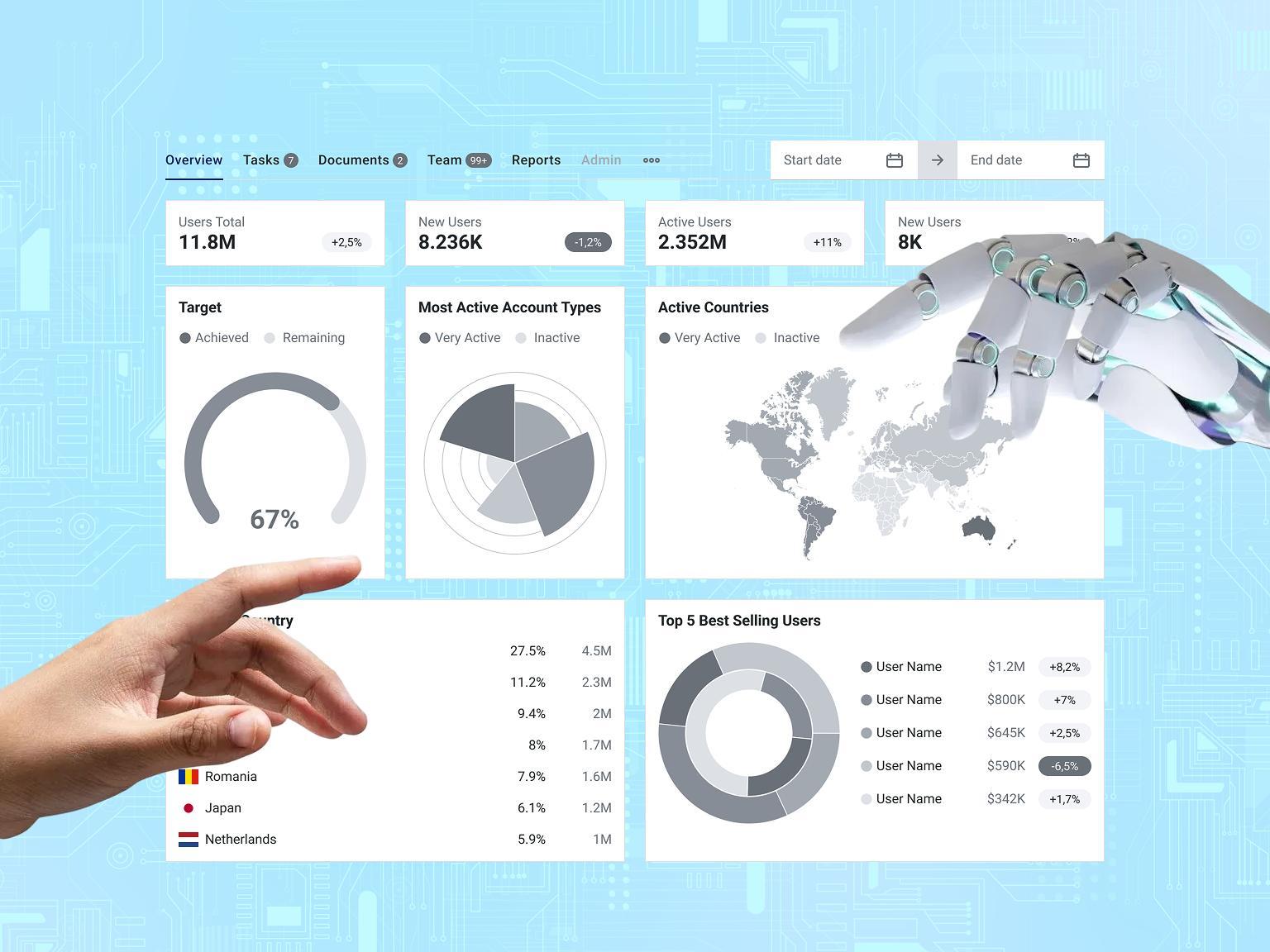Enhancing Healthcare with EHR Integration
Any healthcare practice aiming to deliver efficient, well-coordinated care requires accurate and readily accessible patient health information. That’s where EHR integration steps in.
Connecting your practice management software with EHR is highly convenient. Doctors get an entire patient’s medical history at their fingertips. Nurses tackle administrative tasks in an instant. And throughout your organization, fragmented patient data becomes a unified record.
We’ve already discussed EHR software development and its benefits. Today, let’s discuss another option: electronic health record integration. Discover its impact on day-to-day operations, implementation challenges, and the top EHR-integrated software solutions available.
What Is EHR Integration?
Think of a plethora of medical information your organization holds: patient histories, prescriptions, treatment plans — all scattered across different departments. Add test results and documents from external sources like labs and pharmacies to this mix. Accessing this information becomes difficult, preventing effective care.
Tackling this inconvenient approach to storing medical info is essentially EHR integration meaning. Simply put, it’s connecting electronic health records with other healthcare software you use in your hospital or healthcare organization.
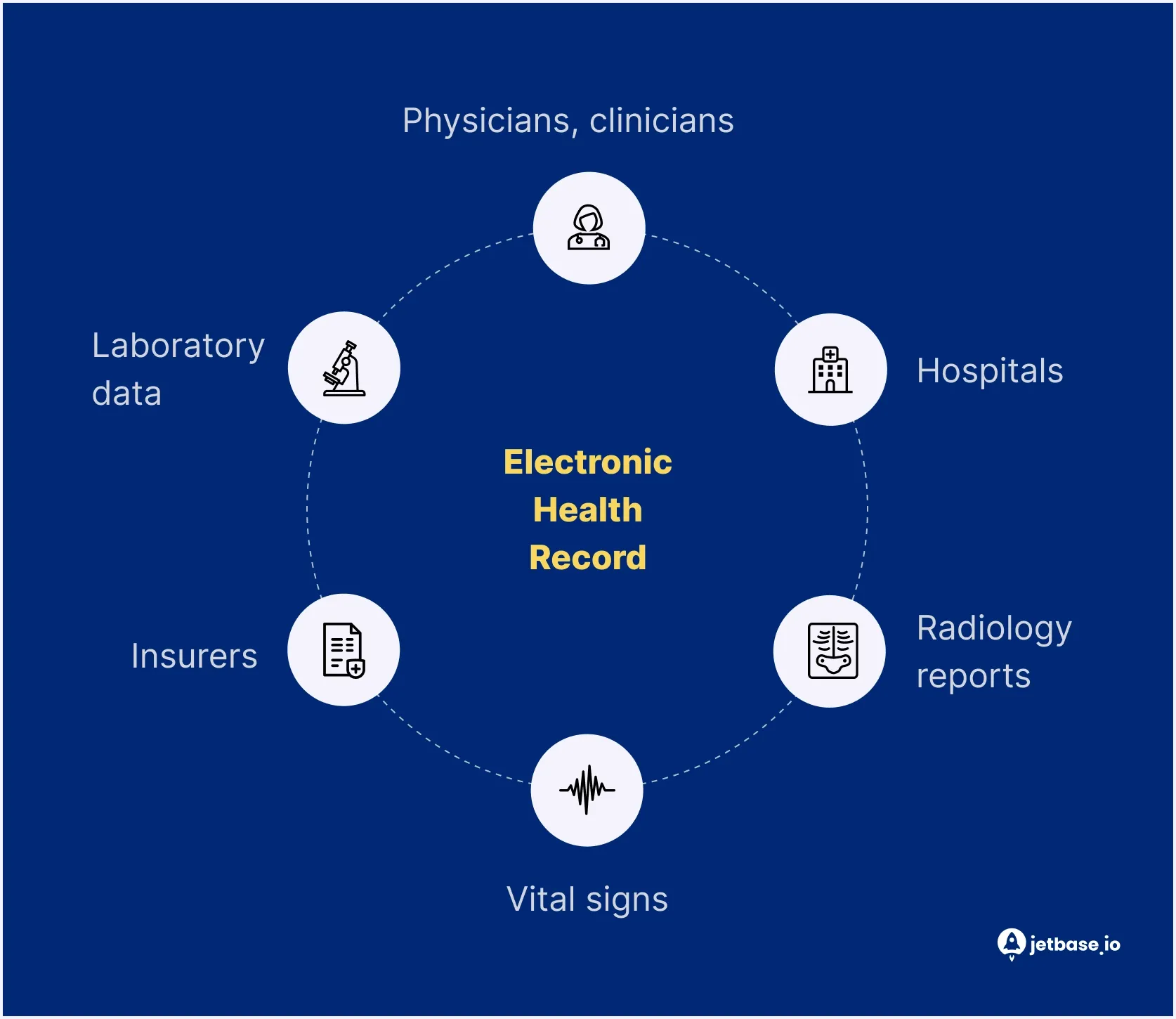
In this setup, your EHR is a central location that stores all patient data, from demographics to diagnoses and past procedures. It lets doctors access the necessary information quickly while patients can easily add personal details, making check-ins a breeze.
Key Benefits of Integrating EHR into Practice Management
Integrating your practice management system with EHR significantly benefits your organization, staff, and, ultimately, patients. Let’s look at some of the most impactful perks:
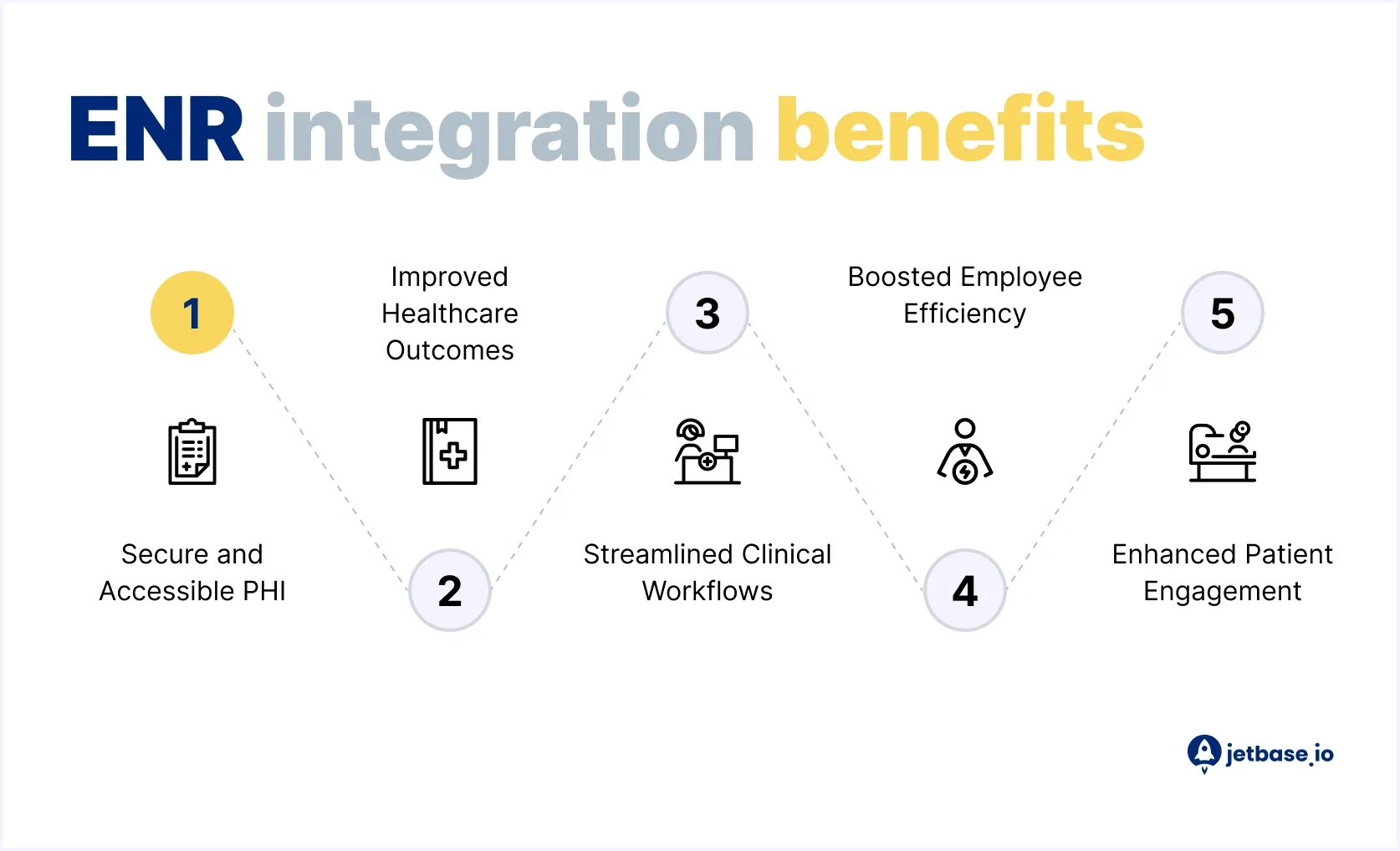
Secure and Accessible PHI
Compliance with data protection regulations like HIPAA or GDPR is one of the must-have requirements of any EHR system. It guarantees your patients’ personal health information (PHI) is secure. Plus, by turning all data electronic, you ensure easy access through your organization’s software and add extra protection against theft, fire, or natural disasters.
Improved Healthcare Outcomes
Since all patient data is readily available in a centralized platform, doctors make more informed diagnoses and treatment decisions. This leads to more effective patient care plans and, consequently, better healthcare outcomes.
Streamlined Clinical Workflows
EHR data integration goes beyond just improving your patient’s health. It also benefits the administrative part of your organization. Just think — no duplicate records or manual data entry. EHR integration helps automate tasks and free up time for clinicians.
Boosted Employee Efficiency
Owing to automated administrative tasks and easily accessible data, your staff can focus on the core processes. Thus, you get a more productive work environment for better patient care.
Enhanced Patient Engagement
Patients enjoy a hassle-free experience. That’s exactly what EHR integration offers. With this solution in place, patients can access their health records from anywhere, schedule appointments online, and generally be more invested in their treatment.
Why EHR Integration Is Crucial for Healthcare Practices
As you’ve probably understood from the benefits described above, EHR integration isn’t just a nice-to-have feature. It is a critical tool that impacts your daily operations and sets your practice up for long-term success. Here’s why:
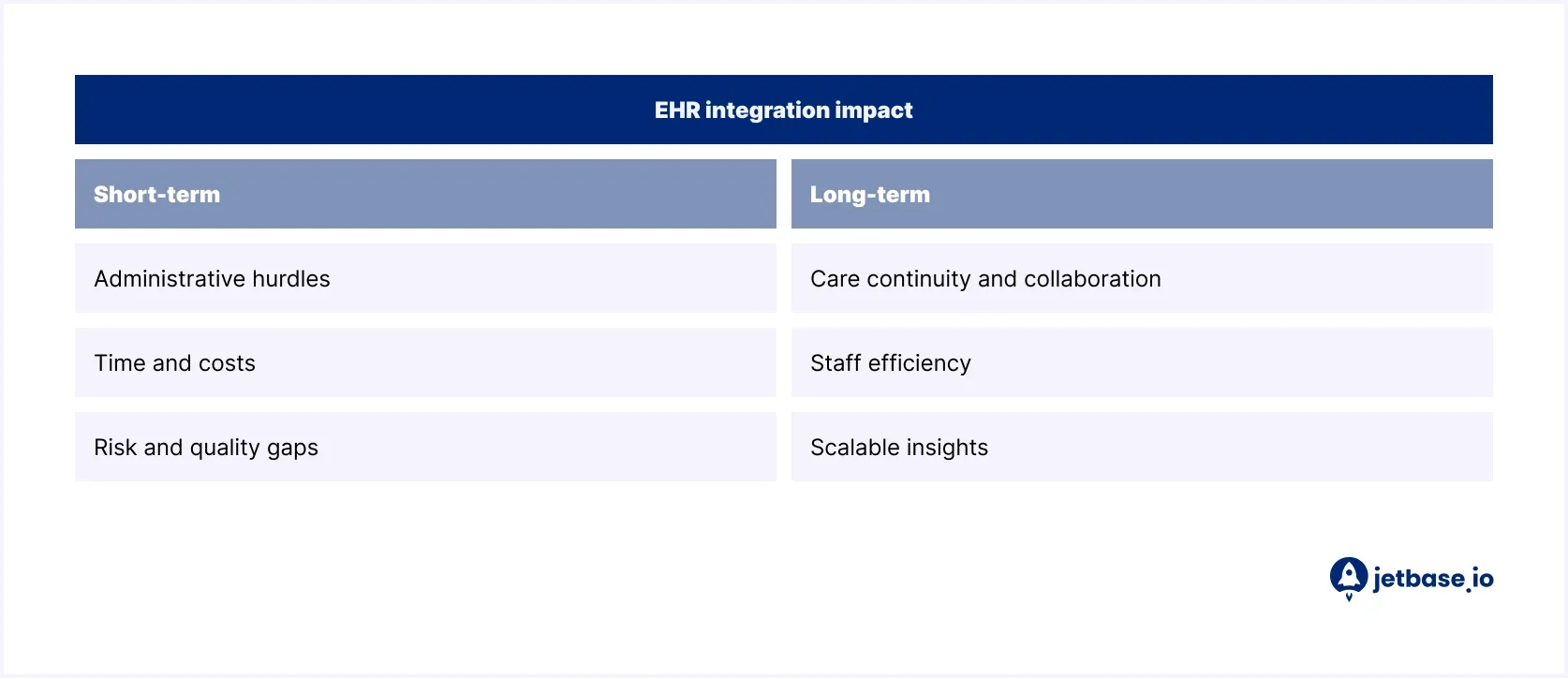
Impact on Day-to-Day Operations
Integration with EHR helps deal with various obstacles you may face in your practice:
- Administrative hurdles. Embrace automation as EHR streamlines administrative tasks and serves as a central hub for all patient data.
- Time and costs. Building your own EHR software might be expensive. So, data search and entry, billing, and other processes are time-consuming. EHR integration solves all of these issues.
- Risk and quality gaps. Real-time data access promotes proactive care management and minimizes the risk of incorrect diagnoses. Additionally, EHR systems facilitate collaboration between healthcare practitioners.
Long-Term Advantages for Healthcare Providers
EHR is a future-proof solution that benefits healthcare providers in the long run. Here’s how:
- Care continuity and collaboration. EHR integration lets all healthcare providers involved in a patient’s care collaborate freely. It also ensures that healthcare data can be easily transferred and accessed by authorized professionals.
- Staff efficiency. With EHR integration that streamlines workflows, your employees can be more productive and efficient.
- Scalable insights. Owing to a unified data platform, you gain insights into patient health trends and overall population health. This lets you improve your services, allocate resources wisely, and make better healthcare decisions.
Common Challenges in EHR Integration You May Face
EHR integration, while extremely advantageous, comes with specific implementation challenges. Let’s see what you may have to deal with:
Technical and Compatibility Issues
Most healthcare organizations use multiple software solutions in their practice. Integrating EHR with all of them can be difficult. You may face data errors, system crashes, and workflow disruptions if any compatibility issues occur.
Human Factors: Staff Adoption and Training Needs
Sadly, not everyone embraces change with open arms. Your employees may have different levels of tech expertise, and some might even feel resistant to learning a new system. Besides just that, organizing proper training for your staff is a resource-intensive task.
Financial Considerations: Costs and ROI
Electronic medical records integration requires substantial investment. Though costs vary depending on the chosen platform, customization needs, and the number of providers in your practice, it’s necessary to plan integration thoroughly and in advance.
You will also expect a return on their investment from EHR implementation. If not integrated thoughtfully, it may lead to disappointment and a waste of money.
Legal and Compliance Issues Related to Data
Data privacy is yet another concern in healthcare. Data breaches and noncompliance with data protection regulations can undermine your organization’s reputation and frustrate your patients.
 Overcoming EHR Integration Challenges with Best Practices
Overcoming EHR Integration Challenges with Best Practices
Now that you know the roadblocks you may face on your way to EHR integration, let’s see how to overcome them. Consider the following strategies that ensure a smooth implementation process:
Thorough Planning and Partnering with a Reliable Vendor
Don’t integrate EHR with your system right away. First of all, develop a comprehensive plan. Think through your:
- Existing data structure;
- EHR system selection criteria;
- Implementation budget;
- Integration timeline.
Then, partner with a reliable EHR vendor. Choose one that offers implementation support, thorough documentation, and training resources.
Addressing Interoperability and Compatibility
Give preference to interoperable EHR solutions from the very beginning. Consider systems that leverage universal standards like HL7 for a smooth data exchange.
On top of that, standardize data formats across your software systems to simplify integration.
Strategies for Effective Staff Training and Adoption
To help your employees adopt the EHR system quickly, invest in a training program that includes clear user manuals and comprehensive support resources.
If some employees are still hesitant about the change, emphasize the advantages of EHR integration. Explain how it simplifies workflows, improves patient care, and lessens administrative tasks.
Managing Costs and Maximizing Return on Investment
Before the actual EHR integration, consider the implementation timeline and projected time to value of your chosen solution. Calculate potential cost savings from reduced errors and smoother workflows.
Think about implementing EHR gradually. Start by integrating the most critical systems and expand as necessary. This approach minimizes disruptions and helps save on budget.
To evaluate the effectiveness of EHR integration for your practice, monitor key metrics. These may include staff productivity, patient satisfaction, and beyond.
EHR Integration for Multi-Location and Cross-Border Clinics
The implementation of EHR integration enables your healthcare organization to expand its operations across different regions or countries. EHR integration makes it easier.
With a centralized EHR:
- All operational locations simultaneously get access to current patient information through real-time data sharing
- The data system follows requirements of local data protection laws including HIPAA, GDPR, UAE Data Law and others
- The reporting system and analytics function harmoniously between all medical facilities
The accessibility of consistent accurate data makes this solution beneficial for telemedicine clinics and clinical trial institutions and medical tourism providers.
Top EHR-Integrated Software Solutions
Choosing the right EHR software integrations is critical for your practice’s success. But with so many options, finding the best one can be tough. Luckily, we prepared a comprehensive list of leading EHR-integrated solutions with powerful features:
1. Athenahealth

Athenahealth is a cloud-based EHR platform that offers helpful practice management features. In particular, it provides you with:
- Simplified documentation;
- Comprehensive patient records;
- Complete regulatory and industry compliance.
Besides these fundamental functionalities, athenahealth delivers advanced EHR capabilities like population health support as well as voice-powered and telehealth services.
The pricing depends on your particular requirements, so athenahealth suggests contacting them for a quote.
2. eClinicalWorks

eClinicalWorks is a leading EHR system with over 850,000 healthcare professionals leveraging its capabilities. Integration with this EHR lets you access advanced AI-powered features, including:
- Sunoh.ai for turning natural language into clinical documentation;
- AI assistant for automating administrative tasks;
- Image AI for simplifying fax inbox management;
- AI for robotic process automation.
eClinicalWorks offers decent telehealth features as well. The pricing for this solution starts at $499/mo.
3. PatientIQ

PatientIQ offers a top-notch EHR solution that has already been adopted by over 450 healthcare organizations worldwide. It features:
- Patient-reported outcomes collection;
- Patient education;
- Satisfaction and reputation management;
- Data reporting.
As you can see from the functionalities above, PatientIQ’s edge is its increased focus on patient engagement. To complete this integration, you can simply request a demo on their website.
4. NextGen Healthcare

NextGen offers solutions for organizations of various sizes, from small to mid-size and enterprise practices. You can choose between either EMR or EHR integration for your institution. The capabilities you’ll get include:
- Detailed patient records;
- Integration with multiple providers;
- Support from NextGen.
To discover the pricing for NextGen solutions, the company encourages contacting them directly.
5. DrChrono

DrChrono is an all-in-one, cloud-based EHR that offers a suit of features like:
- Practice management;
- Telehealth;
- Revenue cycle management;
- Medical billing tools;
- EMR;
- Mobile EHR.
It also lets you customize the integrated EHR to your organization’s specialty, whether urgent care, family practice, or any other option. The pricing depends on the necessary features, so reach out to DrChrono to get a precise quote.
Choosing the Right EHR Integration for Your Practice
Of course, the list of EHR-integrated solutions we provided above is not exhaustive. There are numerous others. To select a suitable one, consider the following tips:
- Define your needs clearly. Do you need a universal solution with practice management and telehealth capabilities or just a simple EHR integration? Consider the features you require and the amount of patient data you have to find your perfect fit.
- Prioritize interoperability. Always opt for EHR solutions that integrate with other systems smoothly. This will ensure your EHR and other software solutions communicate easily, minimizing data disruptions.
- Consider user experience. Your staff is the end-user of your EHR system. Choose solutions with user-friendly features that can be easily adopted by your employees.
- Ensure security and compliance. Prefer an EHR vendor with a robust security infrastructure and HIPAA or GDPR compliance. Ask questions about their data security measures to rest assured that your patient data is safe.
- Prefer scalability. Select EHR solutions that can grow alongside your practice. Look for vendors that update their software regularly.
But don’t make your choice alone. Rely on the expertise of healthcare software specialists to ensure a successful EHR integration. At JetBase, we can help you with just that. Contact us today to schedule a consultation and get your EHR system selection done.




